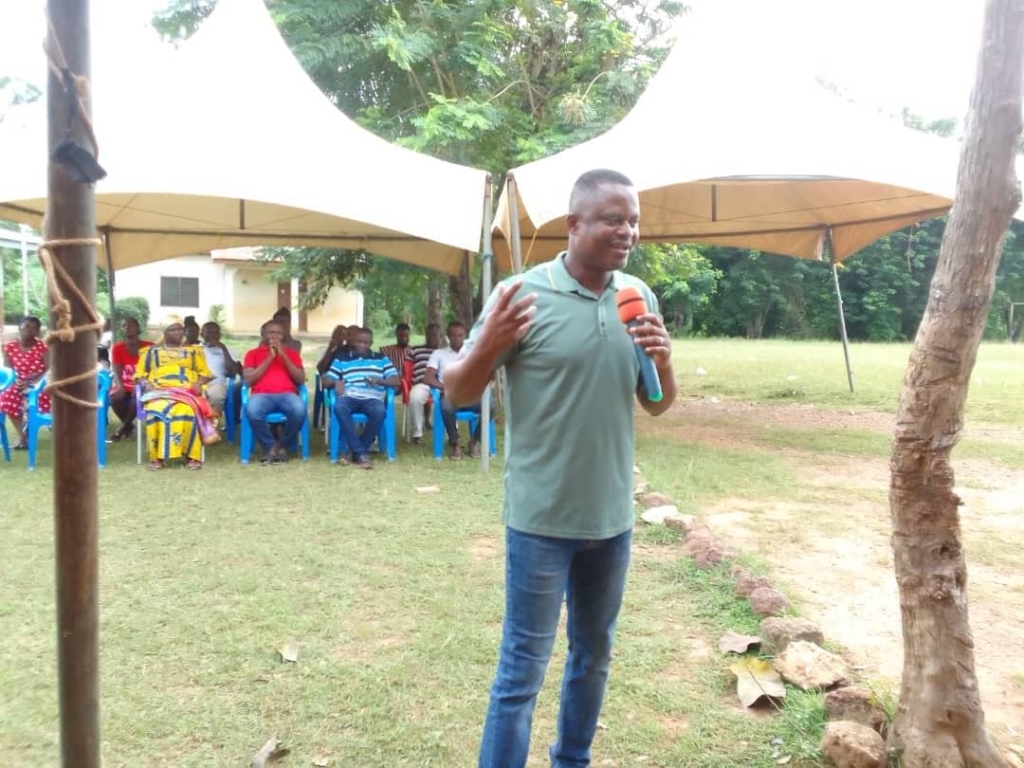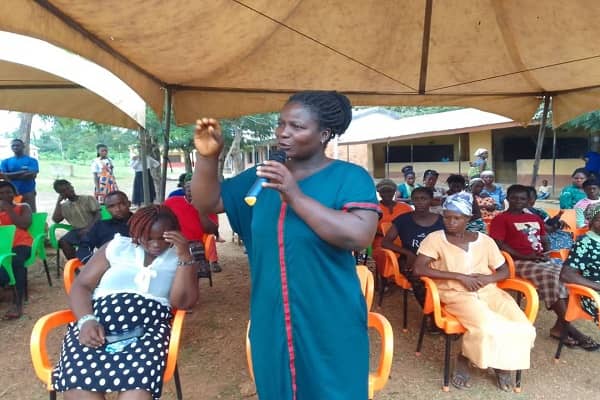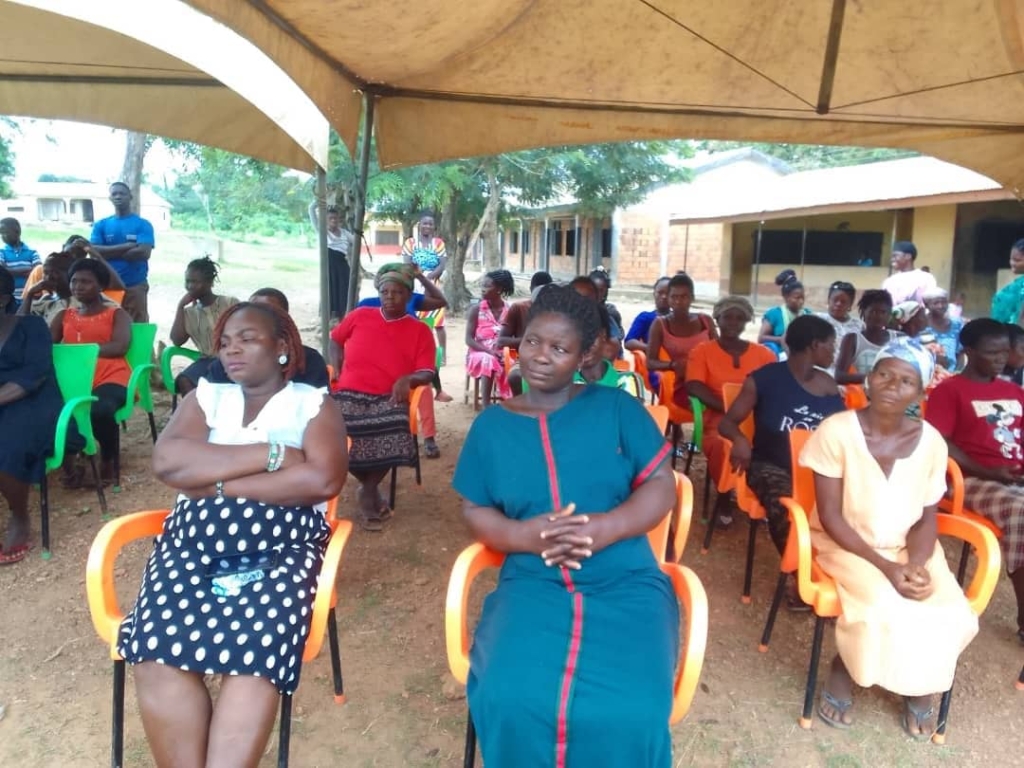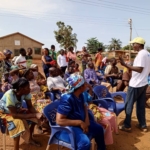
The Founder and Chief Executive Officer (CEO) of Global Media Foundation (GLOMEF), Raphael Godlove Ahenu, has called for pragmatic and well-thought-out programmes to promote the decision-making power of women at the household and community levels in Ghana.
He observed that women are still left out in important decisions that matter to their overall health and well-being at the community and household levels, leaving many of them vulnerable.
He noted that though government and Non-Governmental Organisations (NGOs) have tried to engage women and girls at the local level to prioritise their needs at community and household levels, the efforts have not been well-thought-out.

Mr Ahenu said this while facilitating separate local-level advocacy sessions on women’s participation in decision-making at the household and community levels in five communities within the Sunyani Municipality of the Bono region.
The communities are Nwowasu, Yawsae, Sofokrom, Keyeremehkrom and Kyerebogya.
The advocacy sessions were organised by Global Media Foundation under the Plan Ghana International’s project for Women’s Innovation for Sustainable Enterprises (WISE) and funded by Global Affairs Canada.
The four-year project, which is on its last year of implementation, seeks to enhance economic empowerment, well-being and inclusive economic growth for women in Ghana.

The local-level advocacy sessions were to deepen the knowledge of about 1,500 men and community members on women’s right and appreciate the importance of women participating in decision-making at the household and community levels.
The human rights crusader said although women are the majority of Ghanaian society, unequal power relations between them and men needed a resolution at the individual, household and community levels.
”This includes engaging stakeholders in the community and husbands to listen and involve women and their wives in decision-making,” he added.
According to Mr Ahenu, there is evidence that women’s participation in household decision-making and ability to purchase food is significantly associated with the availability of diverse diets for the household.
‘‘This enforces the idea that women’s decision-making autonomy is an important aspect of women empowerment, as it relates to women’s dietary diversity and subsequently better nutritional status,’’ he noted.

He, therefore, stressed the need for interventions in Ghana targeted at promoting women’s decision-making power at the household and community levels.
The WISE Project Manager, Rose Aawulenaa, said the WISE project is a women’s economic empowerment project which seeks to promote innovative, integrated and gender-transformative business services by improving women’s agency to exercise decisions regarding their participation in economic growth as well as increasing productivity, profitability, and innovation.
The Project Manager emphasised that ‘‘taking decisions without involving women at the households and community levels has to stop’’.
She noted that having both men and women involved in decision-making broadens the perspectives, increases creativity and innovation, diversifies the pool of talents and competencies, reduces conflicts, and improves the process of decision making.
Some men at the sessions mentioned disrespect, arrogance and the women’s inability to keep secrets as few reasons they do not involve their wives in decision-making.



